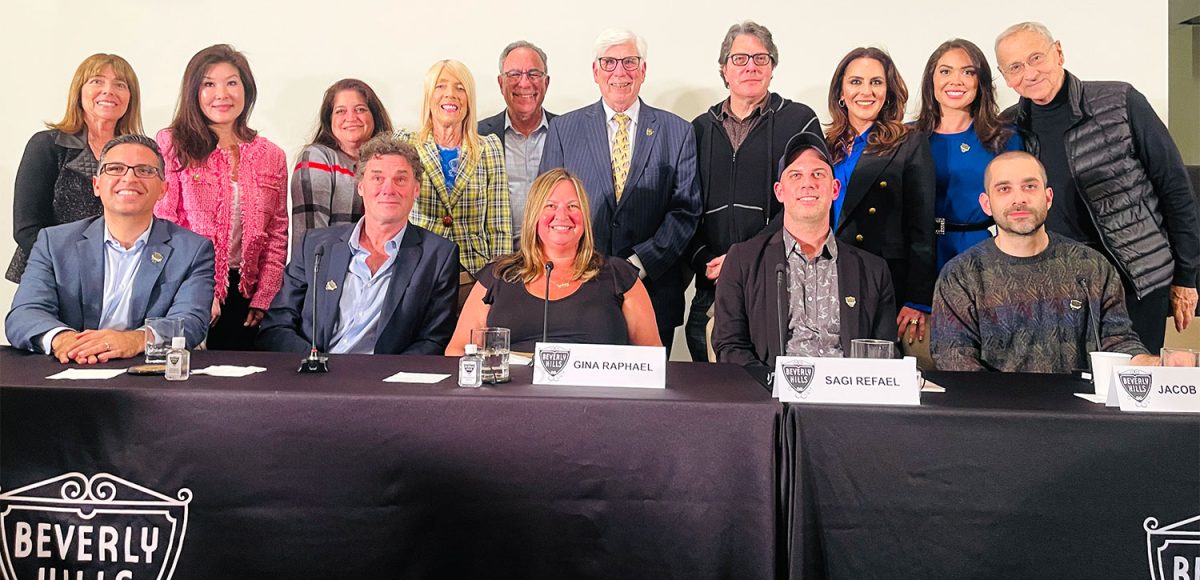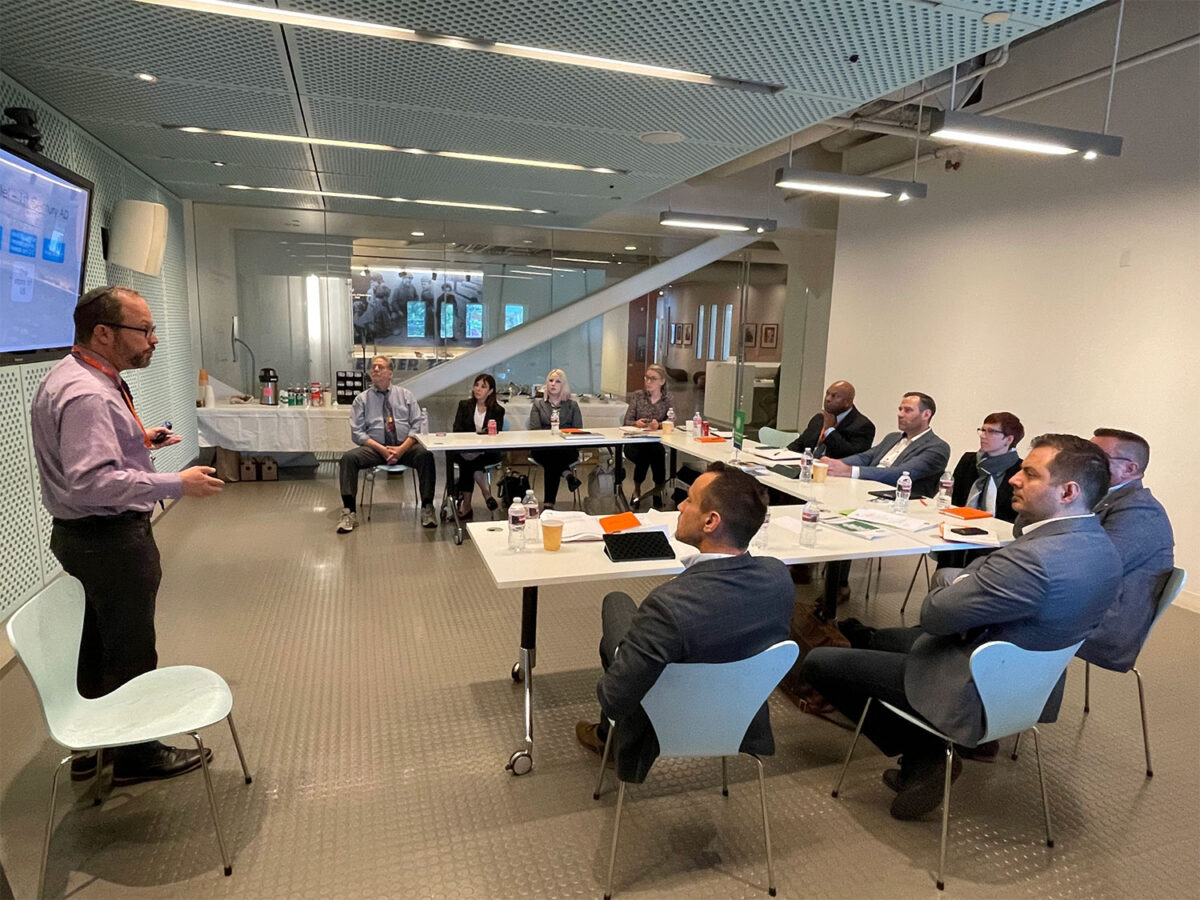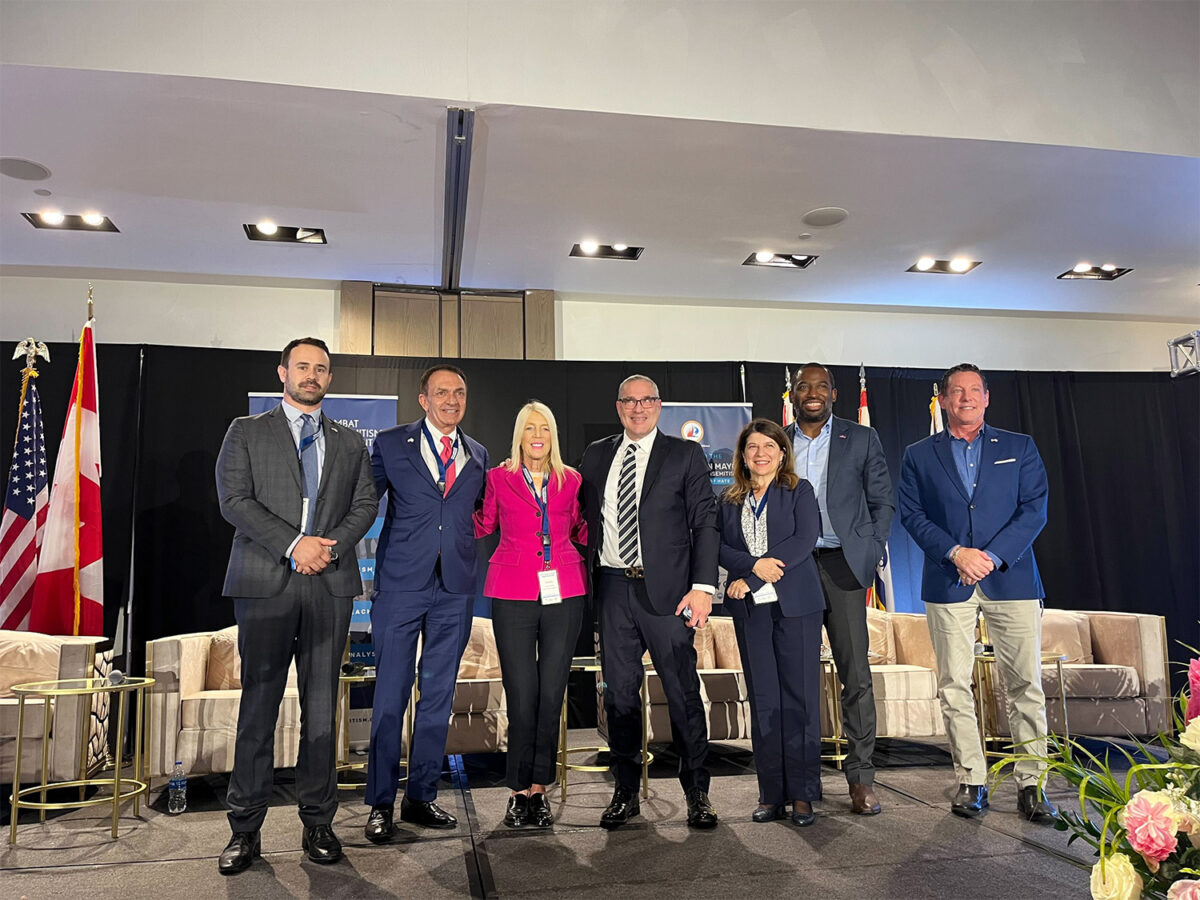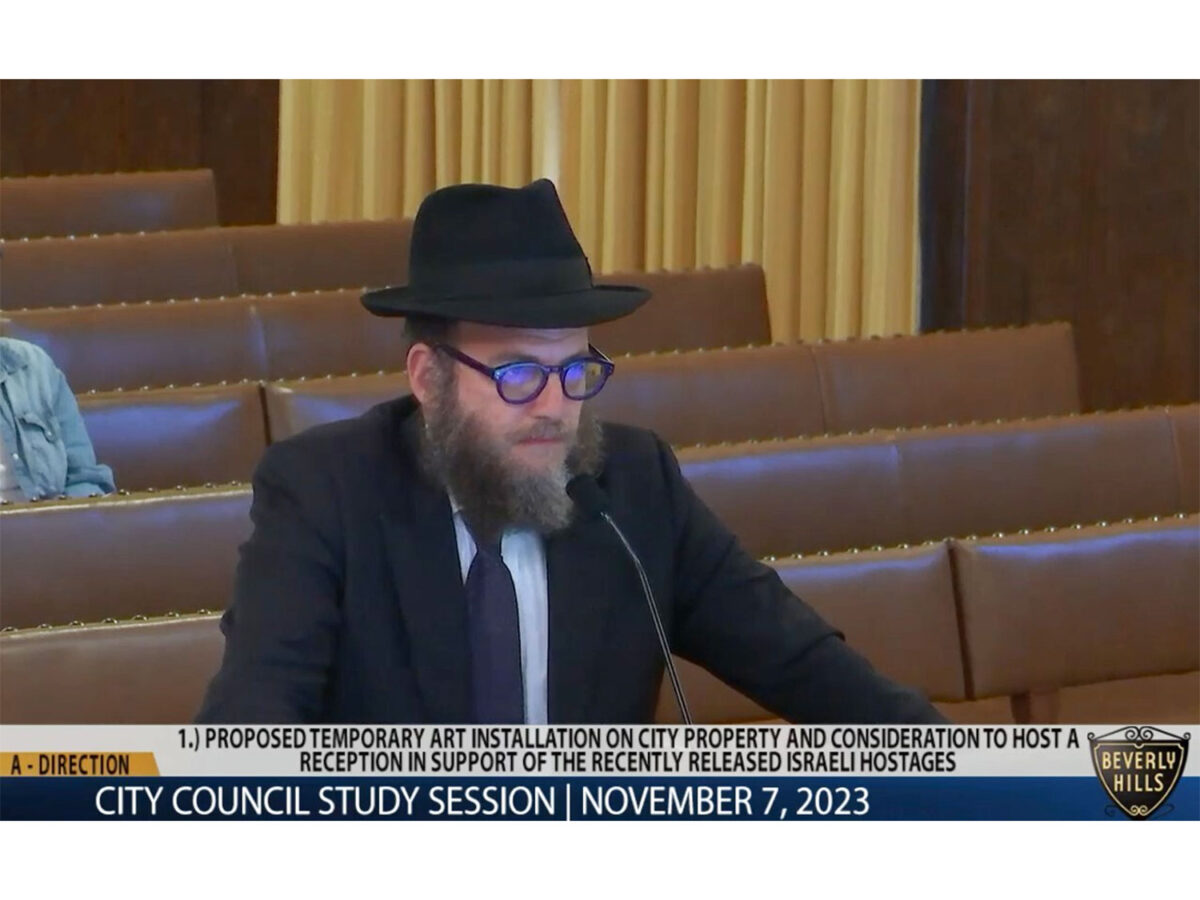Whereas Jewish people in America were once outsiders, they’ve become insiders, and whereas antisemitism in the U.S. continues to be a problem, it is nowhere near the level it was in the 1930s when antisemitic figures like Father Charles Coughlin had large followings.
Jewish journalist Rob Eshman shared that view during the May 31 program, “The Jewish Contribution to the American Fabric of Life,” a panel discussion convened as part of the city’s ongoing “Critical Conversations” series in commemoration of Jewish American Heritage Month.
Others disagreed. While Beverly Hills is a “pocket” and “haven” from antisemitism, Jew-hatred remained a “rampant” problem plaguing the country, Gina Raphael, chair of the Women’s International Zionist Organization in California, said during the in-person discussion.
Raphael pointed to the recent performance by Roger Waters, an internationally known musician who appeared onstage wearing what resembled a Nazi uniform.
This back-and-forth was held in the City Hall Municipal Gallery. Six dynamic leaders in the Jewish community participated in the discussion, co-presented by the Beverly Hills Human Relations Commission in partnership with the Community Services Department.
Approximately 100 people, including all five City Council members, attended the discussion.
Noelle Freeman, chair of the Human Relations Commission, moderated the 80-minute conversation, which featured Eshman; Raphael; attorney and nonprofit leader Sam Yebri; writer Jacob Savage; Israeli American art historian and curator Sagi Refael; and Holocaust survivor Severyn Ashkenazy.
Asked by Freeman to weigh in on the Jewish impact on media throughout contemporary history, Eshman, former publisher and editor-in-chief of the Jewish Journal of Greater Los Angeles, said it was challenging—how does one underscore the active role Jews have had in the industry without fueling stereotypes about Jews?
The idea of Jewish control of the media,” Eshman said, “has been an “antisemitic canard from Henry Ford to Kanye West.”
While Jewish entertainment professionals once changed their names to hide their Jewishness— “Has anyone here heard of David Kaminsky?” said Eshman. No? Well, you might know him as Danny Kaye, the well-known actor from the 1940s and 1950s— Jewish entertainers today no longer feel the need to do that.
And in the fledgling days of Hollywood, films often examined themes of tolerance and bigotry—the 1947 movie, “Gentleman’s Agreement,” concerning a journalist who poses as a Jew to expose antisemitism, is one example—Jewish filmmakers today are less concerned with tackling anti-Jewish sentiments in their work, Eshman added.
However, perhaps they ought to be. During a Q&A with the audience, Councilmember John Mirisch, seated in the front row, asked how to effectively respond to antisemitism coming both from the political far-right and the far-left.
In response, Savage highlighted how hatred against Jews unfolds on college campuses. The contributing writer at online Jewish magazine Tablet cited an incident at his alma mater, Princeton University, where Jewish students walking into a campus building to pray on Friday night faced opposition by pro-Palestinian activists.
If Jewish students had spoken out against Muslim students while they were entering a mosque, they would have been rightfully vilified as bigoted, Savage said, prompting a nod of agreement from Eshman.
One audience member asked what the panel thought of U.S. Second Gentleman Doug Emhoff, the Jewish husband of Vice President Kamala Harris. Emhoff speaks publicly about his Jewish identity and has been tasked by the Biden Administration to support its effort combating antisemitism in the U.S. and abroad.
“I think it’s exciting to see him take on the mantle of antisemitism…and to have him speak so personally about his Jewish identity,” said Yebri, co-founder of 30 Years After, a nonprofit dedicated to engaging Iranian-American-Jews on civic issues.
The program was a collaborative effort between city government officials and commissions. Councilmember Lili Bosse, while serving as mayor, proposed the idea of a “Critical Conversations” series, garnering the support of the entire City Council.
Bosse participated in a 2022 conference in Greece about combating antisemitism. The experience led to the Council’s decision to mark Jewish American Heritage Month— held every year in the month of May—with a series of programs this year.
The “Critical Conversations” discussion was the final event in the monthlong series of happenings. Human Relations Commissioner Vered Elkouby Nisim and Commission Ad Hoc Chair Freeman turned to their network of community members and thought leaders when selecting speakers for the program. Ultimately, the event illustrated the city’s longstanding commitment to celebrating its sizable Jewish community.
“Our community has a large Jewish American population, so it seemed like a very fitting celebration,” Harris said. “We just recently celebrated various cultures at our Festival Beverly Hills event as a way to promote diversity and inclusion. It’s important to promote diversity and inclusion in differences between cultures, and we hope to help foster a greater understanding and appreciation of people from all backgrounds. By celebrating various cultures, we hope to bring about awareness, understanding, appreciation and respect of people from all backgrounds.”







